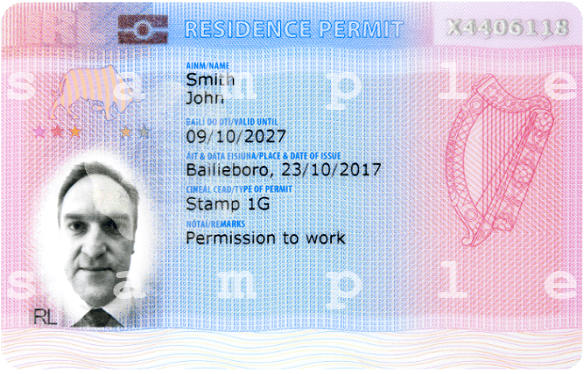GOVERNMENT ANNOUNCES THE END OF RE-ENTRY VISA SYSTEM IN IRELAND
The Justice and Equality Minister of Ireland, Charlie Flanagan TD, announced on April 12th the abolition of the re-entry visa system. The change, which will affect more than 40,000 people per year, will start to apply from May 13th, 2019.
Under this system, Emerald Isle residents of countries requiring prior visas – see the list below – who wish to travel to other countries and return to Ireland have been required to apply for an entry and exit visa prior to travel, (re-entry visa), in addition to paying the fee for this application.

CHECK OUT THE GUIDELINES BELOW ON THE “RE-ENTRY VISA”, BY THE IRISH GOVERNMENT:
Leaving and returning to Ireland
If you plan to leave Ireland for a short period of time and then return, you must apply for a re-entry visa. You must have a valid Irish Residence Permit (IRP) or a GNIB card to apply for a re-entry visa. If you leave without a re-entry visa, you will not be allowed to return to the country. You will have to reapply for a full visa.
From May 13th onwards, these individuals will be exempt from a visa requirement if they have a valid Irish Residence Permit (IRP) or a GNIB card.
With the change, it will be possible to show the passport and IRP or GNIB card to prove to airlines and immigration officials that they have the right to travel to Ireland. There will be no requirement for a re-entry visa.

According to the Irish government, the system will be phased out as the IRP card has been improved, which has eliminated the need for re-entry visas without compromising the security of the visa or the immigration system. The IRP card is in the European Union standard format for residence permits and is recognized by airlines.
–
READ MORE: 5 REASONS WHY YOU SHOULD STUDY IN IRELAND
–
This change doesn’t affect some nationals like Brazilians, for example, who already don’t need a previous visa to travel to Ireland. However, it affects thousands of people from the following countries:
COUNTRIES THAT CURRENTLY NEED VISA TO TRAVEL TO IRELAND:
- Afghanistan;
- Albania;
- Algeria;
- Angola;
- Armenia;
- Azerbaijan;
- Bahrain;
- Bangladesh;
- Belarus;
- Benin;
- Bhutan;
- Bosnia and Herzegovina;
- Burkina Faso;
- Burma / Myanmar;
- Burundi;
- Cambodia;
- Cameroon;
- Cape Verde;
- Central African Republic;
- Chad;
- China;
- Colombia;
- Comoros;
- Congo (Brazzaville);
- Costa do Marfim;
- Cuba;
- The Democratic Republic of Congo;
- Djibouti;
- Dominican Republic;
- Ecuador;
- Egypt;
- Equatorial Guinea;
- Eritrea;
- Ethiopia;
- Faroe Islands;
- Gabon;
- The Gambia;
- Georgia;
- Ghana;
- Guinea;
- Guinea Bissau;
- Haiti;
- India;
- Indonesia;
- Iran;
- Iraq;
- Jamaica;
- Jordan;
- Kazakhstan;
- Kenya;
- Kosovo;
- Kuwait;
- Kyrgyzstan;
- Laos;
- Lebanon;
- Liberia;
- Libya;
- Macedonia (FYROM);
- Madagascar;
- Malawi;
- Mali;
- Marshall Islands;
- Mauritania;
- Mauritius;
- Micronesia;
- Moldavia;
- Mongolia;
- Montenegro;
- Morocco;
- Mozambique;
- Namibia;
- Nepal;
- Niger;
- Nigeria;
- North Korea;
- Oman;
- Pakistan;
- Palau;
- Papua New Guinea;
- Peru;
- Philippines;
- Qatar;
- Russia;
- Rwanda;
- Sao Tome and Principe;
- Saudi Arabia;
- Senegal;
- Serbia;
- Sierra Leone;
- Somalia;
- Southern Sudan;
- Sri Lanka;
- State of Palestine;
- Sudan;
- Suriname;
- Syria;
- Tajikistan;
- Tanzania;
- Thailand;
- Timor Leste;
- Tunisia;
- Peru;
- Turkmenistan;
- Uganda;
- Ukraine;
- Uzbekistan;
- Venezuela;
- Vietnam;
- Yemen;
- Zambia;
- Zimbabwe.
It’s important to point out that even with the abolition of the re-entry visa, future students of these nationalities, for example, who don’t yet have their IRP card, still need a valid visa to enter the country. The re-entry visa is issued only to those who already reside in Ireland.
See the government’s recommendation for this case:
Intentional residents: the IRP is issued to non-EU citizens who have been allowed to reside in Ireland for more than 90 days. IRP book-ups can take a few weeks and up to two weeks for the card to be delivered.
Therefore, nationalities requiring a visa to travel to Ireland intending to enter and leave the country during the first four months of their stay must apply for a multiple entry visa, which will allow them to travel to Ireland several times in one period before their IRP card is issued.
—
Do you want to learn English online with native speakers? Check our online platform and go for it!





